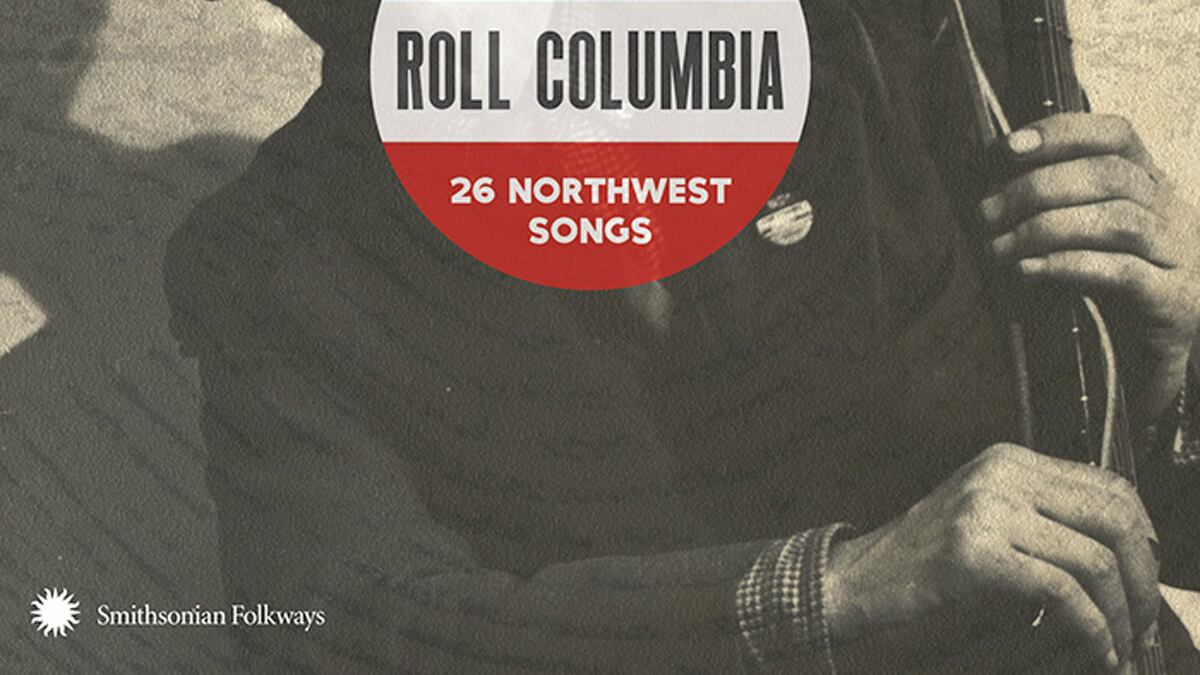Woody Guthrie was no fan of Portland. The folk singer and OG antifa was busted for vagrancy on an early visit to the city, and later characterized it as a backward boondocks.
"Portland is a place where rich ones run away to settle down and grow flowers and shrubbery to hide them from the massacres they've caused," he once said. "Mentally, Portland is the deadest spot you ever walked through."
But as a socialist songwriter with three small children trying to survive the aftermath of the Great Depression, Guthrie was in no position to turn down work from the Bonneville Power Administration, who hired him to write propaganda tunes encouraging public support of hydroelectric power projects along the Columbia.
The month Guthrie spent in Southeast Portland ended up being arguably the most productive four weeks of his life. Living in a small apartment in the Lents neighborhood, Guthrie wrote 26 songs, including the classics "Pastures of Plenty" and "Roll On, Columbia, Roll On."
All the songs from that fruitful month were recorded anew for Roll Columbia: Woody Guthrie's 26 Northwest Songs, a compilation issued by Smithsonian Folkways Recordings.
Related: "Joe Seamons' Roll Columbia Aims To Complete Woody Guthrie's Northwest Legacy."
There ain't a "California Stars" or "Joe DiMaggio Done It Again" among these songs, recorded by various artists with the sparse acoustic arrangements you hear on Guthrie originals. Whether it was his focus on the objective at hand, getting the damn dams built, or his distaste for Portland, Guthrie's efforts here focus on the plight of Northwest workers and the potential to be unlocked were the land to be wetted with water from the river.
If you love dams, you're in luck. Throughout, the majesty of the Gorge plays second fiddle to the wonders of civil engineering projects. To my ear, the most interesting of the lot is "Washington Talkin' Blues," recorded by Scott McCaughey, Peter Buck and Jon Neufeld. They tell an altered version of Guthrie's own life, following the story of an Okie forced off his land by the Dust Bowl, who heads up to Washington to claim a plot of land where there's not enough water.
"Now what we need is a great big dam/throw a lot of water out across the land/People could work and the stuff would grow, and you could wave goodbye to the old skid row," he wrote.
Other songs are awkward in their boosterism. The Grand Coulee Dam is "the biggest thing man has ever done," Guthrie wrote in a song where he compares it favorably to the Great Pyramid of Giza and the Empire State Building, which bizarrely transitions into a riff about Hitler.
Despite those shortcoming, the cocktail of hopefulness about evolutionary technology, working-class frustration and the specter of creeping fascism give the record an almost unforgettable timeliness. Especially here in the deadest spot Guthrie ever walked through.
SEE IT: Roll Columbia: Woody Guthrie's 26 Northwest Songs will be performed at the Alberta Rose Theatre, 3000 NE Alberta St., on Friday, July 14. 7 pm. $18 advance, $22 at the door.
